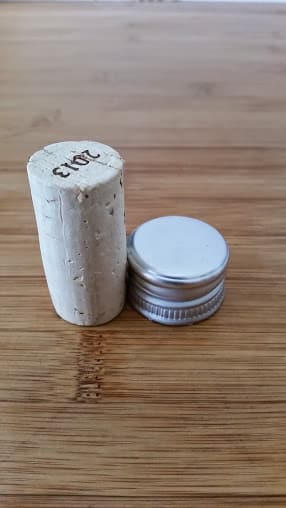Moderation required in the closure debate
By Christian Eedes, 20 November 2014

1
 The cork vs screwcap debate is in danger of becoming too polarised. During the recent Elgin White Wine Retrospective, a workshop convened by the Elgin Valley Wine Guild to analyse strengths and weaknesses of members’ current-release wines, there were two incidents which again illustrated that deciding on the most appropriate closure is no easy matter.
The cork vs screwcap debate is in danger of becoming too polarised. During the recent Elgin White Wine Retrospective, a workshop convened by the Elgin Valley Wine Guild to analyse strengths and weaknesses of members’ current-release wines, there were two incidents which again illustrated that deciding on the most appropriate closure is no easy matter.
Twelve examples of Chardonnay in three flights of four. First up, the Iona 2013 under natural cork next to Paul Cluver 2013, Lothian 2013 and Corder Cool Climate 2013, all under screwcap. We were tasting blind and I thought what turned out to be the Iona looked particularly pretty and alive while the others all showed some degree of reduction.
As to why Iona winemaker Werner Muller opts for cork, he initially says “That’s what they do in Burgundy.” Pressed for more detail, he says “I like what I see when it comes to ageing. The process is less retarded but also more interesting – it’s about complexity.”
On to the next flight and the first bottle of Oak Valley 2013 under natural corked was spoilt by TCA, cork doing great things for the Iona but not so much the Oak Valley…
See an interesting post by UK wine writer Jamie Goode on comparing the same wine sealed with cork and screwcap here.






Kwispedoor | 20 November 2014
I agree that people get way too maniacal about this and that one can certainly find positives and negatives on both sides. One thing that still perpetuates widely, is the idea that earlier-drinking wines supposedly do well under screw-cap and wines made with the idea that they should ideally be matured for quite a few years, do better with cork. Why, especially with the kind of oxygen-permeable cap liners that companies like VinPerfect sell, now available?
I have probably had about six bottles of Tulbagh Mountain Vineyards TMV Swartland Syrah 2007 over the last year. Consistently gorgeous (Mullineux-crafted, in basically the same way, from basically the same vineyards as Mullineux Syrah) they all were, with subtle differences – as one should always expect from older wine. But – critically – no spoilt wines and no reduction. It’s under screw-cap (presumably ones not nearly as good as what’s available nowadays).
It should also be noted that a few things (apart from incorrect bottling and bad choice of screw cap type) affect the perception of reduction. Tasting vs. drinking: it’s always much more likely to be noticed when opening and tasting one after the other, versus opening, letting air do it’s thing and actually drinking a bottle. Age: with maturation, reduction is also less of a problem (in isolated cases, more) and if it’s there, it’s often only there fairly fleetingly after opening the bottle – much like ‘bottle-stink’ with wines under cork sometimes manifest. Also, even if there is a bit of reduction, we’re far from talking about ruined wine. Talking about wine ruined by cork, I feel sorry for Tim James’s loss last night (1999 Tondonia – ouch…): http://grape.co.za/2014/11/morning-after/ But not too much, though, looking at what else they managed to stuff into their bodies. 🙂
If I open a young wine, made to be drunk in its youth, and find that it’s corked, it’s generally pretty easy to replace the wine. Also, I generally haven’t ruined a grand or special occasion, where one would often open a special old bottle of wine. So, cork is not so bad here, right?
However, if I open a grand old wine, ideally made to be drunk many tears after production and it’s corked or oxidised, or tainted by TBA, it’s generally a catastrophe: either you can’t replace it at all or you can only get it replaced with a brand new vintage, plus you surely have tainted your special occasion with this massive disappointment. How’s this better?
Either way, I’ve had some spectacular old wines under cork this year. It’s still a grey area.